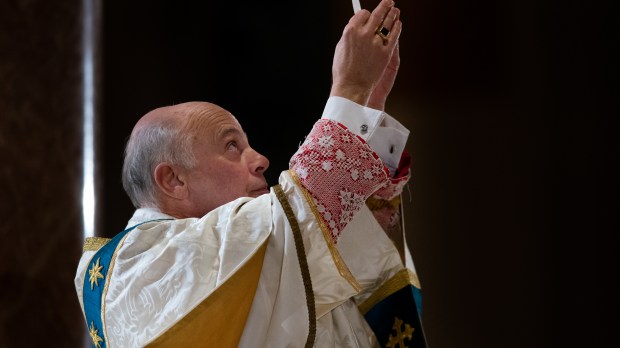Archbishop Salvatore Cordileone recently gave an interview to Fox News Digital in which he spoke about the state of the Catholic Church in the United States. The San Francisco prelate covered many topics from the rampant attacks on Catholic churches in recent years, to the lackluster performance of religious education among the younger generation, which has caused division among the faithful.
Archbishop Cordileone began by saying that he believes one way the Church can get the attention of the young is by championing critical social issues from a Catholic perspective. However, he lamented that the secular world has become hostile to some of the core values of Catholicism. This led the prelate to muse: “How do we live our faith with integrity?”
One area that has received a lot of focus since the Supreme Court overturned Roe v Wade has been abortion. Fox cited the 2022 Pew Research Center pollthat found that about 53% of Catholics believe abortion should be legal in all or most cases, while only 42% agreed with the teaching articulated in the Catechism of the Catholic Church, which opposes abortion from the moment of conception.
The archbishop placed the blame for this division of values on the poor quality of religious education. He explained that even though there is a high Catholic population in the US, a large number of them have not been exposed to the Catholic teaching behind its stance:
“We have a high percentage of Catholics on paper, but we haven’t done a very good job of forming our people well in the faith and helping them understand the faith and love it and live it out,” Cordileone told Fox News Digital. “Unfortunately, there are a lot of Catholics who don’t really follow everything our Church teaches because they probably were never taught what it really does teach and the wisdom that’s underlying it.”
This, Archbishop Cordileone continued, has led to many people who identify as Catholic becoming more influenced by secular society than their Catholic faith. He noted that this, in turn, has weakened the Church’s influence in recent decades. He also lamented that the modern social climate has folks less interested in hearing points of views that dissent from their own, a stark difference from when he was growing up.
“There was much more disposition to listening to the other and trying to work together, come to kind of a mutual understanding … In my lifetime, I’ve seen that disappear. There’s very little of that left.”
As the conversation turned to the nearly 350 attacks on Catholic churches that have occurred since the spring of 2020, the archbishop unequivocally stated that the Church is “being explicitly attacked.” He explained that Church properties have been damaged, its symbols have been desecrated, and the general social outlook on Catholics has turned to one of disrespect. But, turning the other cheek, he said: “So this is a new reality that we’re still trying to adjust to.”
While the Church grapples with changing societal opinions on Christian values, he warned the faithful not to become belligerent or vengeful over slights against the faith. He was also cautious about “drawing a line and taking a strong stand,” which can only cause more friction if taken too far: “Because that can’t be overdone either — because after a while, one will lose credibility, and it might have a reverse effect,” he insisted.
In the end, Archbishop Codileone expressed that the secular world would not be changed by Church leaders, but could only be swayed by the laity. He encouraged laypeople to take part in the political process, to run for office in their local communities and work their way up from the inside. He also emphasized that teaching the faith to children was of paramount importance to the future of the faith.
“In the polarized society we’re living in, it’s hard to break through. But I think we have a very deep intellectual tradition, and there’s a lot to draw on in terms of our understanding of the human person, what our role is — being created in God’s image, that gives us this intrinsic category. And so I think we do have a lot to bring to the table,” the archbishop insisted.

